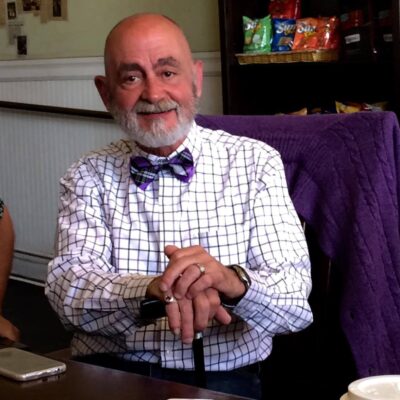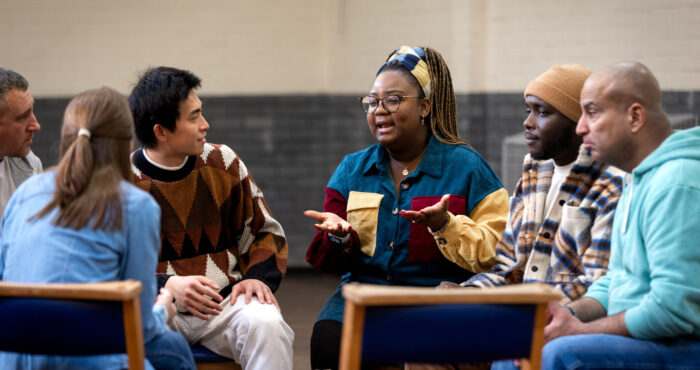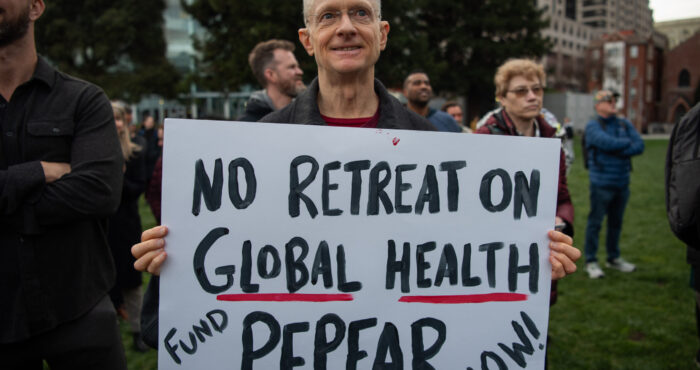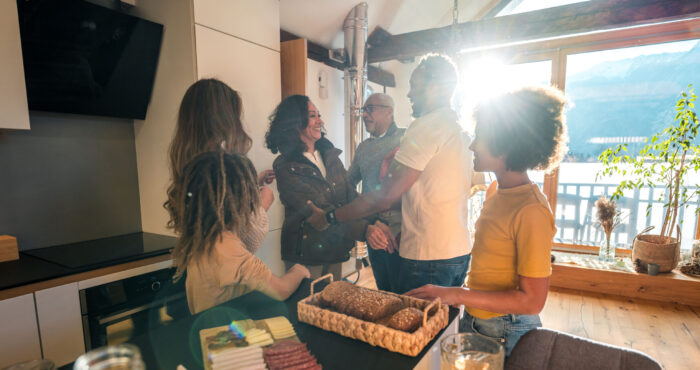Keeping hope alive as a long-term survivor
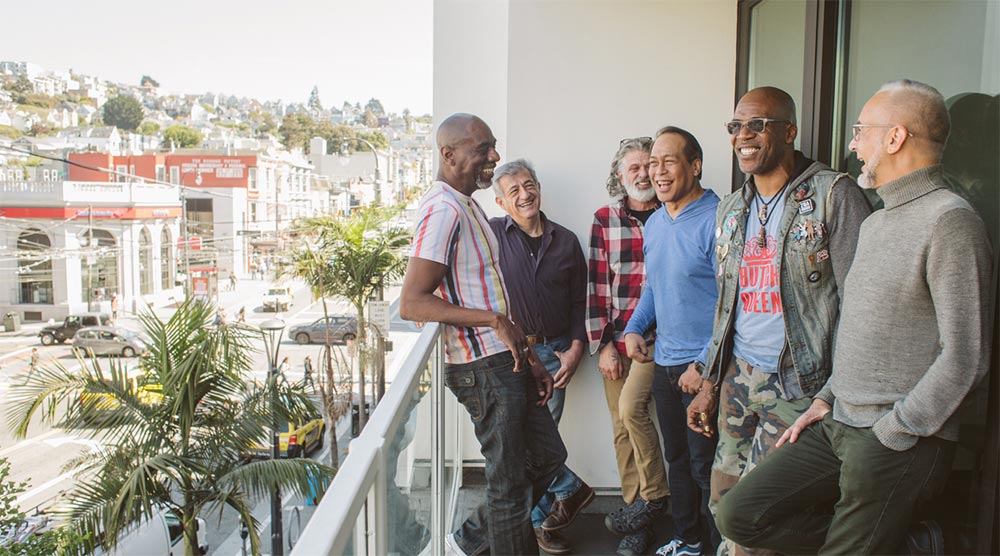
If you were diagnosed with HIV in the first fifteen years of the AIDS pandemic, your doctor might as well have handed you the diagnosis with one hand and with the other a death certificate, just waiting for the appropriate date to be filled in. Having HIV was an almost certain death sentence. Those of us who were diagnosed as HIV-positive in those years were told to “get your affairs in order,” meaning, “prepare to die.”
Many of us did exactly that: we quit work, lived on SSDI payments, settled debts if we could, alerted our friends, and learned to live with the constant expectation that we could meet an ugly, painful death at any time. Very few of us were able to “keep hope alive.”
That long-awaited hope arrived in 1996 with the advent of HAART (Highly Active Anti-Retroviral Treatment), the first efficacious treatment for HIV. Suddenly, the possibility of “living with HIV,” instead of “dying of AIDS,” became a reality for those of us with access to HAART. We rejoiced — we were going to survive the virus that had taken so many of our friends, lovers, and family from us! We tore up those proffered death certificates — we were going to live!
We soon realized, however, that surviving the pandemic, living with HIV, would bring its own problems. Those of us who couldn’t work and lived on SSDI were trapped in poverty; and the outrageously expensive medications we took, while saving our lives, caused innumerable new medical problems: chronic fatigue, accelerated ageing, loss of bone density, liver diseases and failure, a propensity for various cancers, enhanced risk of cardiovascular diseases, and myriad comorbidities. Further, in the pre-U=U days, we lived in fear of transmitting the virus to others. And surviving did nothing to lessen the stigma we faced for being HIV-positive, often within our own communities, causing an epidemic of isolation, loneliness, despair, and depression.
Human beings are meant for more than just “surviving,” we are meant to thrive. But how does one thrive while living with a still-debilitating, stigmatized virus? To find out how some have thrived, and not merely survived, I talked with three long-term survivors, friends from a Thursday night writing group, about their growth from surviving to thriving.
Harley, a San Francisco resident, was thirty-four when he acquired HIV; at seventy-six, he has lived with HIV for forty-two years. Like many of us, Harley said he reacted to his diagnosis with “shock and sadness, fear and depression, isolation and hopelessness, desperation and confusion. I was relieved to finally know my serostatus, but it caused distractions at work and negative projections of my profession, social life, love life, family relations, and fear of the future.” After a period of depression and self-mourning, Harley was determined to take care of himself. “I made a commitment to myself that I would not only survive, but strive to thrive.”
That commitment led Harley to a very proactive approach to living with HIV. He connected with other HIV-positive friends; read all the current information about HIV; attended community meetings led by doctors; joined support groups at San Francisco AIDS Foundation, the Shanti Project, and the Stop AIDS Project; joined an HIV-positive yoga class; quit smoking cigarettes and drinking alcohol; and began a healthy natural diet. Of course he continued to encounter barriers to thriving—economic challenges; job stress; the continuous loss of friends, neighbors, co-workers and community members. He credits “yoga, acupuncture, meditation, dharma talks, humor, comedy, dancing, hiking, and swimming” with helping him stay healthy enough to thrive.
Harley said, “service became a new medicine for me. I volunteered at San Francisco AIDS Foundation’s telephone Hotline when it first started at old drafty building on Valencia Street. I also trained at Shanti and became a ‘buddy.’ I spoke at local schools as an AIDS educator and became active with AIDS political activist groups like Project Inform and ACT-UP.” Significantly, he changed professions and started work full-time at an HIV medical clinic. These days, he said, he now deals with “normal geriatric issues rather than HIV fears.”
Rebecca Dennison was diagnosed with HIV in 1990, although she is certain she acquired the virus in 1983 and lived with it for seven years before her diagnosis. “I was devastated. In June 1990, HIV was considered a death sentence. I thought I had only months to live. I was about to start law school when I found out. I decided not to go. Partly because I didn’t think I’d live long enough to finish.” In those days before the ACA, and before the Ryan White Care Act passed, Rebecca continued to work in order to retain her health insurance. “To me, being uninsured meant you were going to die even sooner than you would otherwise. So having insurance was as big an economic issue as having an income.” With the support of her workplace, she continued to work until she could get covered through her husband’s insurance. Despite the support of dear friends and her husband Daniel, “I felt alone and alienated. People were kind but they really couldn’t understand what it was like to be me. I felt like I was living in a 4th dimension where we all saw the same world but experienced it differently. For a while, I felt really angry at HIV-negative people for the privilege of being able to walk away if they wanted. And then I felt ashamed of being angry because I knew it wasn’t fair to be mad at people for being healthy.”
At first, after her diagnosis, Rebecca was afraid to make plans beyond one year. She had planned to become an immigration lawyer specializing in asylum law. When that plan collapsed, “I didn’t know what to do with myself. But AIDS activists, friends, and family all encouraged me to follow my heart and get involved in AIDS activism–and I did.” She threw herself into fighting for herself and others. “I joined ACT UP Golden Gate, went to all the Project Inform town meetings, started going to conferences, and then started WORLD, an organization by, for, and about HIV-positive women (because they were missing in most of those places). Through that work I got to be friends with women from all over the world, especially after I helped start the ICW (International Community of Women Living with HIV/AIDS).
“Of course, coming to love all those people also meant losing hundreds of people as well. That part was tough. It was tragic to see people die in what should have been the prime of their life. And the cumulative grief of hundreds of people dying while most of the world really didn’t give a damn… that wore me down.” She paused her HIV work in 2003 and went off to raise her daughters. After a while, “I just missed it too much. Various histories of AIDS started coming out and the vast majority left women out completely, which really bothered me. So I started writing, got into therapy, and eventually started reconnecting with other long-term survivors. One of the silver linings of COVID was that we were forced to learn how to meet by Zoom. Suddenly, that opened all kinds of doors. I’m in two weekly writing groups with long-term survivors, which I wouldn’t have joined if I’d had to cross the Bay Bridge to attend—and I’m loving it. The writing always provides a way in to connect with more depth than we might if we were just making small talk.”
Activist, writer, and long-term survivor Harry Breaux learned he was HIV-positive in 1984. Harry had contributed blood samples to a CDC clinical study of hepatitis. The samples from 1979 were negative for HIV, but samples he gave in 1981 were positive for HIV. Thus, he deduces that he contracted the virus in 1980, at age thirty-five; he celebrated his seventy-seventh birthday in March 2022.
“Initially, I was not surprised when I was called in and given the results of the HIV antibody test,” he told me. “After having so actively participated in the sexual freedoms of the 1970s, I knew that I probably had been exposed and probably had contracted the virus. As a slow progressor, my physical life changed very little, but my mental and emotional life was devastated. As long as I felt ‘healthy,’ I continued to live a ‘normal’ life on the outside, but mentally and emotionally, I lived with the knowledge that every little change in my physical condition, every sniffle, every pimple, every cough prophesied the beginning of my march toward death. It just never came for 15 years. Then when I did approach death in 1996 [diagnosed with AIDS], the ‘cocktail’ came along to save me.”
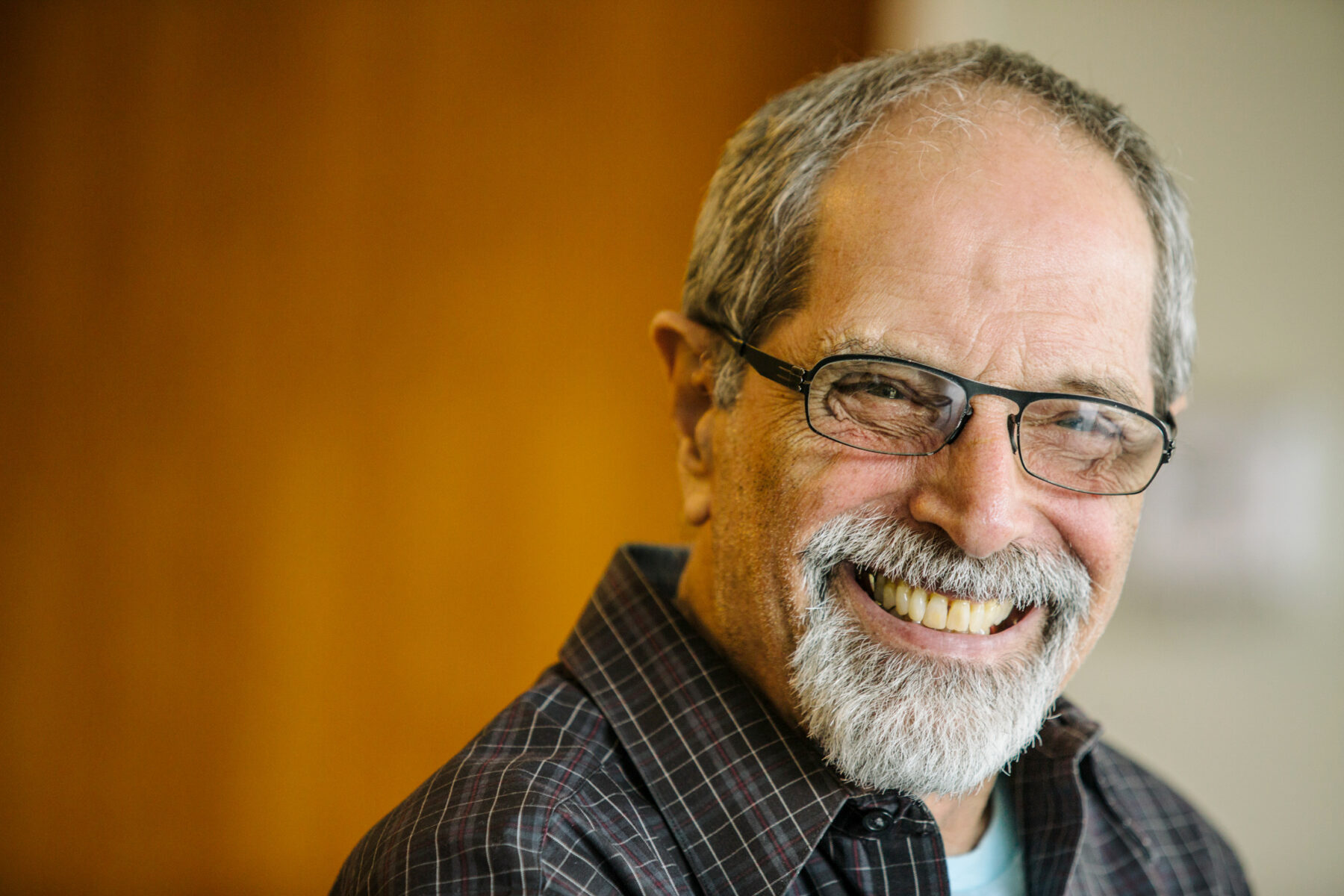
Like the majority of us long-term survivors, Harry faced barriers to thriving. “Finding supportive and stable housing and sufficient financial assistance to care for myself. Finding social support from others who understand my situation or the situation of those in similar circumstances. Finding medical services sensitive to my unique physical condition of being HIV-positive and aging.” He credits San Francisco AIDS Foundation, Openhouse, PRC, the Shanti Project, and other organizations with providing rent and food subsidies as well as opportunities to connect with other HIV-positive survivors. “When I first noticed that I was driven by a different sexual impulse and believed I was the only one, that I was flawed, I felt alone and lonely. Being HIV-positive and surviving so many friends left me feeling old, alone, and lonely. But finding the HIV Community and its strength has allowed me to look at my life as one of thriving through the experience of surviving. No longer alone and lonely as a person with HIV, I now recognize thriving as a viable present and future.”
I asked all three of these survivors what “thriving” means to them as opposed to “surviving.” The three of them gave me similar, almost identical definitions. Here’s Harry’s definition:
“Thriving to me means being able to function as a ‘normal’ human being; being able to experience joy and sadness and peace along with love and compassion; being able to take care of my own personal needs. being mentally alert and creative; being able to contribute to the society around me; being able to maintain my independence; being able to experience the ‘normal’ ageing of my body appropriate to my age; being able to assist others.
“Surviving to me means just being able to breathe, move, eat, and shit.”
As members of the AIDS Generation, we long-term survivors have a deep well of knowledge and experience to share with the newly diagnosed. Unsurprisingly, when asked for advice to the newly diagnosed, all three stressed the same things: know that HIV is no longer fatal if you stick to your medications and take care of your health; educate yourself about the virus, its effects, and how to combat them; learn the history of the pandemic; know that you are not alone, flawed or damaged by this virus, but you are challenged to maintain your hope and tenacity in its unyielding face; know the science, listen to the professionals, and seek to find your own way through; release any sense of shame you may have for being positive; maintain your social life by connecting with other HIV-positive people; volunteer in your community; never hesitate to ask for emotional or financial support from the resources that are available; remain hopeful.
Rebecca offered the most eloquent advice I can think of:
“Pursue your passions. People who feel happy take joy in the happiness of others. People who feel loved want others to feel loved. People who are inquisitive and curious inspire curiosity in others. If you can find a way to lend your time and talent to making the world a better place, all the better. I have seen how having a sense of purpose helps people who are struggling get out of bed in the morning. There’s no ‘right’ way to do this. You do you. Make your art. Write your poetry. Draft awesome legislation. March in the streets. Teach a child to read. Feed someone who’s hungry. Save a redwood tree. Rescue puppies. Grow tomatoes. Smile at the bus driver. Be kind to the checker at the grocery store. Whatever experiences you’ve had up until this point make you a truly unique individual with skills and insights and interests unlike anyone else’s on the planet. If you have a degree, great. But if you don’t, you’re still an expert in lots of things. Don’t overlook the fact that everyone has value and has something to contribute.”
I’ll give Harley the last word: “Trust in your future. Keep Hope Alive.”






